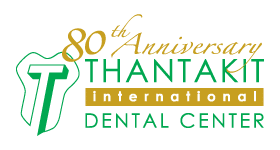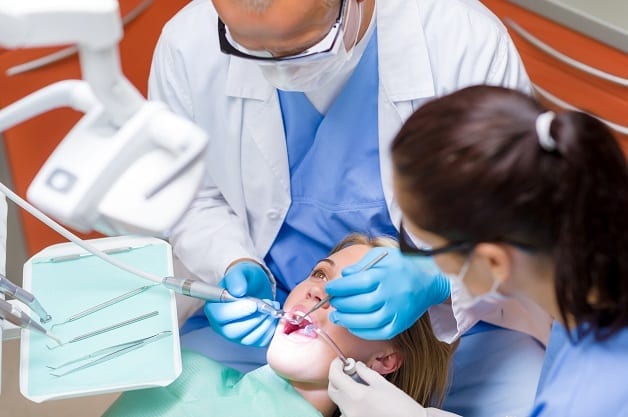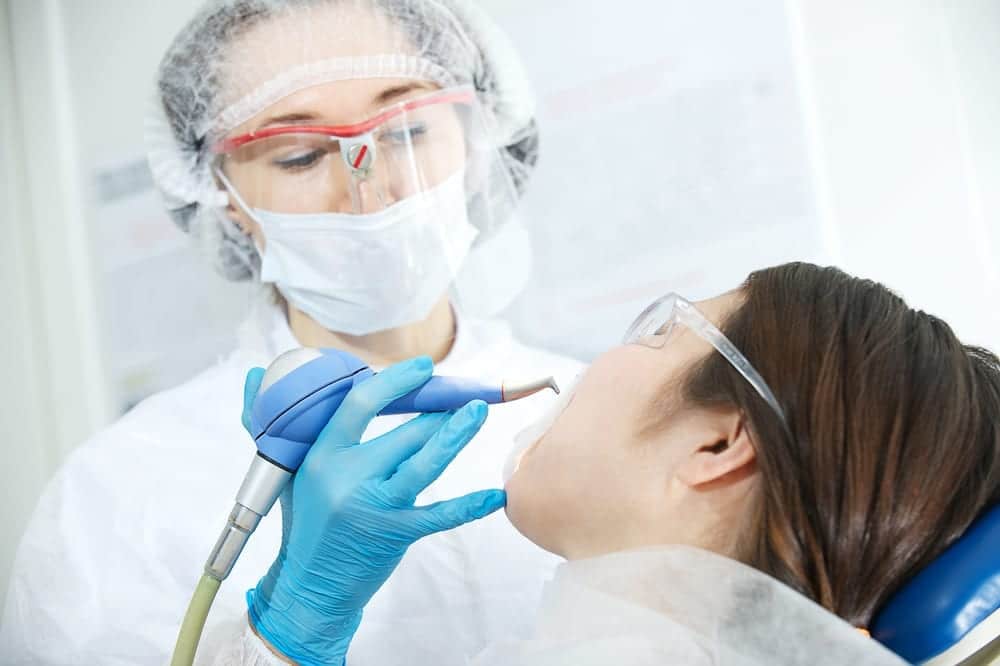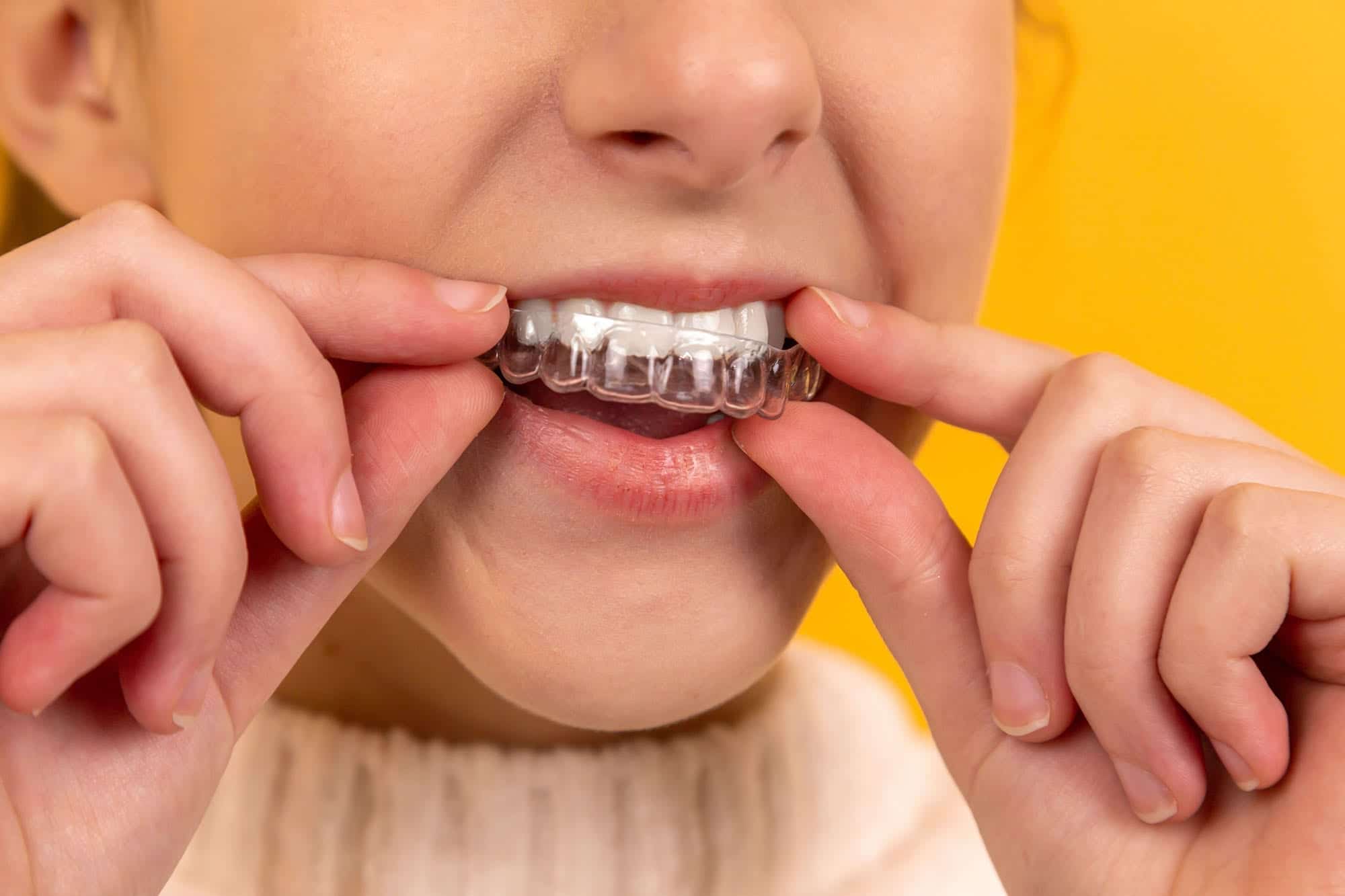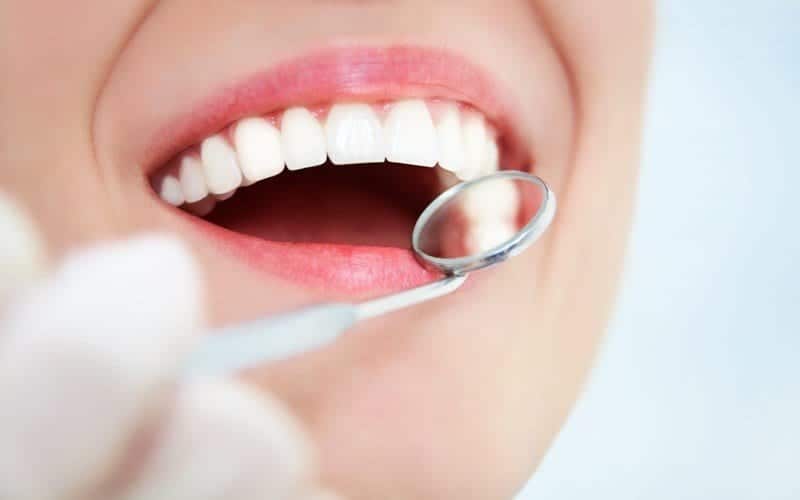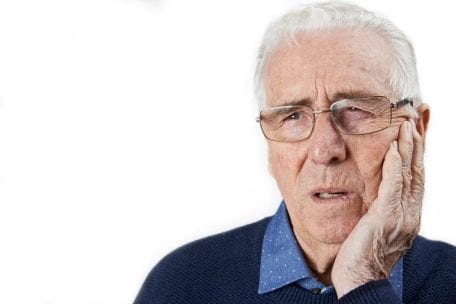Are you a senior citizen who’s worried about your dental health? Then keep on reading. Thanks to the advances in modern dentistry, seniors losing all of their natural teeth have become a thing of the past. Instead, it’s more accurate for typical seniors to have dental implants and whole rows and bridges of false teeth in their mouth, rather than having detachable dentures that must be submerged on a bedside glass of water. However, most elderly people would rather keep their natural teeth for as long as possible. But is it possible – and if so, how can you do it? Let’s discuss everything that you need to know about taking care of your teeth as a senior citizen so that you can keep your pearly whites for many more years to come.
Page Contents
Oral Challenges That Come With Aging
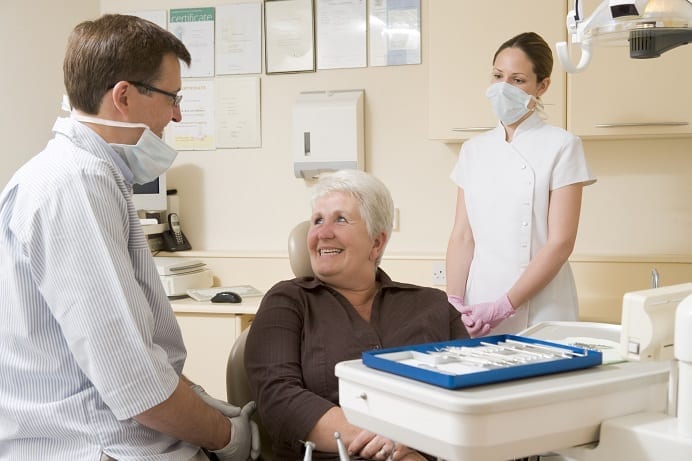
Youthful vigor is able to cover for many things that age can rob you of quite easily. As a person ages, certain oral and dental conditions that weren’t there when he’s younger might suddenly appear out of nowhere (or so it seems). These include the following things that any senior citizen or aging adult must look out for.
- Root Decay: Teeth decay faster and easier when you’re older. It is what it is. It’s usually accompanied by gum disease. Once the roots of your teeth are exposed because the receding gums aren’t covering them, they tend to accelerate in infection and decay as you grow older.
- Disease: Expect to deal with gum disease like gingivitis and periodontitis. At the very least, your teeth should suffer from dental caries more often than before or thrush, which is an abnormal fungal growth in your mouth. If you’re particularly unfortunate, you could end up with oral cancer altogether, especially if you’re a smoker.
- Control and Prevention: CDC for senior citizen dental care should also include awareness of the fact that dry mouth can occur for over 400 commonly used medications when you reach a certain age. The drier your mouth, the bigger your risk for oral disease. Saliva is what helps rebuild enamel and kill bacteria.
- Dry Mouth: Speaking of dry mouth, senior citizens by default experience dry mouth more than younger people do because the older people get the more this phenomenon occurs. Furthermore, you can prevent dry mouth by simply rehydrating yourself as much as possible with water.
- Attrition: Your mouth tends to wear down from use. You will use it often to eat and thusly it will wear down because of that. Many decades of grinding and chewing will take its toll on the toughest of teeth. However, senior citizen teeth tend to be more susceptible to damage because of old age. As the enamel gets worn down, your dental caries or cavities risk rises.
Maintaining Your Teeth as a Senior Citizen
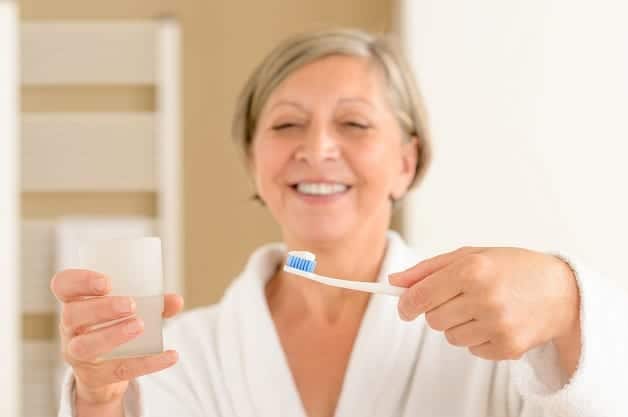
There are habits you can maintain in order to keep your oral health at the optimum range even as you get older. However, they extend even further than the bare minimum you used to observe when you were younger. They include the following, by the way:
- Fluoridation Increases and Calcium Consumption: The fluoride in your tap water might not be enough anymore when you brush your teeth. You should switch to fluoride toothpaste from now on or go for a fluoride rinse every day to stave off dental degradation. You can also take advantage of the fluoride in your tap water, conspiracy theories about it aside. Fluoride can help hand-in-hand with you ingesting a regular dose of calcium from milk or tablets to keep your teeth strong.
- Tobacco Avoidance: When you’re older it’s best to avoid tobacco if you want to keep most or all of your teeth. Actually, it’s even better to never pick up a smoking habit in the first place. Tobacco cigarettes, chewing tobacco, or any other tobacco type have links to increased throat and mouth cancer risk as well as other serious conditions like heart disease. Teeth can decay from tobacco consumption because many formulations contain sugar as well.
- Optimum Oral Hydration: As a senior citizen, you should optimize your oral hydration. Drink 8 glasses of water a day. Also, as your doctor if your medication has dry mouth side effects. If yes, then ask for him to replace your meds with something that doesn’t cause such a condition. Otherwise, drink plenty of water and chew some sugar-free gum to deal with your dry mouth situation. Avoid drinking alcohol too since it’s known to dehydrate your body quite quickly as well.
- Using Antibacterial Mouthwash: The acids that result from too much starch and sugars in your mouth are caused by bacteria eating those leftover food remnants in your oral orifice. By killing all that bacteria with antibacterial wash and coupling it with flossing and brushing, you’ll end up reducing plaque buildup. Mouthwash is highly effective in killing 99.9 percent of all bacteria every time you use it.
- Watch What You Eat: More importantly, you should do certain lifestyle changes like eating less starchy and sugary foods because age will cause your mouth and teeth to be more susceptible to breakdown. Whether you have a full set of dentures, partial dentures, or your full set of original teeth, diligently doing oral care is just as crucial when you age as it was when you were a growing child.
- Caring for Your Dentures: According to the American College of Prosthodontists, more than 178 million Americans are missing at least one tooth. Elderly people are likelier to suffer from tooth loss than any other age group. If you’re part of this demographic, you should take care of y our dentures just as you would your remaining teeth or just as you should’ve the teeth you’ve already lost. Use special toothpaste customized for denture cleaning. Clean them everyday too.
- Partial Denture Care: If you have partial dentures, make sure to floss between the implants before putting the dentures back in. This is because the implants themselves can serve as a gathering spot of plaque and bacteria and you don’t want it to become a Petri dish of oral nightmares covered and safeguarded by your own dentures when all is said and done. Clean both the implants and the dentures to cover all bases.
- Maintain All-Around Oral Care: Don’t just brush and floss your teeth or dentures. You should also brush your tongue and gums with a soft toothbrush in order to remove food particles and bacteria from your mouth that produce the acid that destroys tooth enamel or even denture ceramic. You also don’t want plaque formation to happen. Pay attention to the specific instructions your dentist has in taking care of your mouth and dentures so that they can last as long as possible.
Regardless of age, good oral care habits and dental hygiene remain important. However, this becomes double the case when it comes to senior citizens. Even if you already have a dependable hygiene regimen that served you all these years, you might need to do some tweaks on your dental routine regardless. At this age, a crack or break from the outer surface of the tooth can leave delicate pulp tissue vulnerable to inflammation due to irritation.
Oral Care Challenges and Issues Facing the Elderly

Adults should realize that their teeth now require special attention due to their advancing age, thus necessitating new oral care tips separate to those they were taught during their youth. For example:
- Don’t Forget about Gum Disease: Whether you have all your real teeth, some of them, or none of them, gum disease remains a huge concern among seniors. According to a published study in the Journal of Dental Research, nearly 64 percent of adults over 65 years of age have moderate to severe periodontitis from 2009 to 2010. Even though it’s common, gum disease doesn’t have to be a natural conclusion of age. Maintenance of excellent dental hygiene and seeing your dentist as regularly as possible will help stave off such issues.
- Simple Wear and Tear: Even if you’re careful with your teeth so that it doesn’t get cavities and the like, 60 years’ worth of grinding and chewing will take its toll on your teeth. Molar teeth might be strong enough to take 200 pounds of pressure, but these amazingly strong teeth aren’t indestructible. A lifetime or grinding, gnawing, and crunching will wear away the enamel or flatten the biting edges of your incisors. Take your calcium in order to ensure stronger teeth as well as stronger bones.
- Acid of All Types: Aside from the acid produced by bacteria feasting on leftover food and calculus buildup, your teeth both false and real can be affected by exposure to acidic foods and condiments such as carbonated beverages, citrus fruits, and vinegar. These acids can dissolve the protective enamel of real teeth or the outer porcelain layers of false teeth. Once enamel is weakened, this can set your mouth and teeth up for even worse dental problems down the line.
- A Strong Supporting Cast: While the stars of a healthy mouth is a set of sturdy teeth, they cannot function without a strong supporting cast. By cast, we mean the soft, wet tissues that line the oral cavity along with the gums. Periodontal disease is what happens when your jawbone deteriorates, your teeth become wobbly, and your gums recede. It’s also the primary reason why tooth loss among elder adults is so common in the first place.
- How Periodontal Disease Starts: Periodontal disease begins when there’s plaque buildup in the shallow troughs between the gums and the teeth. Age isn’t the cause of this but periodontal disease often happens among the elderly because by its nature it’s a disease that gradually becomes worse and worse while remaining undetected in its earliest stages. It shouldn’t be left untreated for too long, like in decades, since it can only cause worse, more expensive problems around 60 years or so.
- The Good News about Periodontal Disease: The good news about having periodontal disease from gingivitis to outright periodontitis is that it’s treatable at any age. However, obviously, the older you are and the worse your periodontal disease is, the more expensive the treatment will be. Periodontal disease treatment usually involves scaling to remove the diseased or injected gum tissues, hardened plaque, and so forth. It also involves antibiotics and in severe cases, outright surgery.
- More About The Dental Rigors of Tobacco: Your risk of developing oral cavity cancer increases with age and tobacco use. This is consistent with many other related cancer types. Most seniors who develop oral-based cancers are cigarette smokers. Your chances of mouth-related cancer development rises with every year you smoke or chew tobacco, especially when it comes to the body’s natural breakdown as you grow older and older.
- The Areas Where Oral Cancer Is Likeliest to Develop: Oral cancers are likeliest to develop on the lip then by the tongue. Quite a number of cancer tumors develop on the lower lips. Meanwhile, according to studies and statistics, men are likelier to get affected by tobacco-related cancer compared to women. What’s more troubling is that the initial signs of oral cancer are oftentimes missed because of how subtle they are. Go refer to an oral specialist if you notice any red or white patches on your lip, tongue, or the bottom of your mouth that last longer than two weeks.
The Bottom Line
A greater number of seniors and adults are keeping their natural teeth for a longer period of time compared to their predecessors. This is all thanks to interdental cleaners like flosses capable of cleaning between the teeth, toothpaste, toothbrushes, and other oral care tools as well as more widespread oral care education and the advances of modern dentistry, However, it’s crucial for these same seniors to maintain their dental health once they get older – in fact, even doubly so.
Keeping on top of dental maintenance as an elderly man or woman requires double the work, in the same way that you need to work twice as hard when exercising in order to achieve and maintain gains that you’ve easily achieved back in your youthful days. It also requires following the common sense practices discussed above. Lastly, always remember to visit your dentist regularly since he can offer more oral care tips that are specific to your case during every visit. So never skip your checkups with your dentist.
Thantakit International Dental Center is Thailand’s longest established dental center. Situated in Bangkok, our clinic is renowned across the world as a destination for world-class dentistry, with most of our patients flying to us from Australia.
Please contact us today and get a FREE dental consultation.
